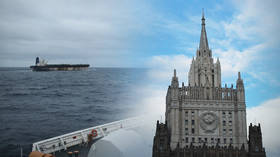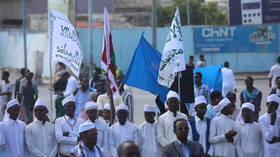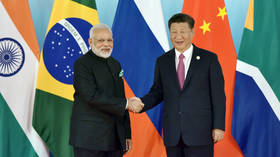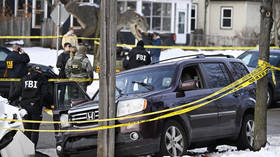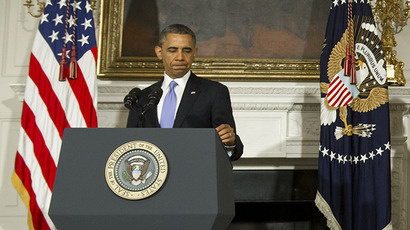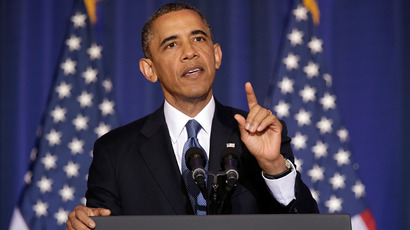US considering new drone bases in Central Asia
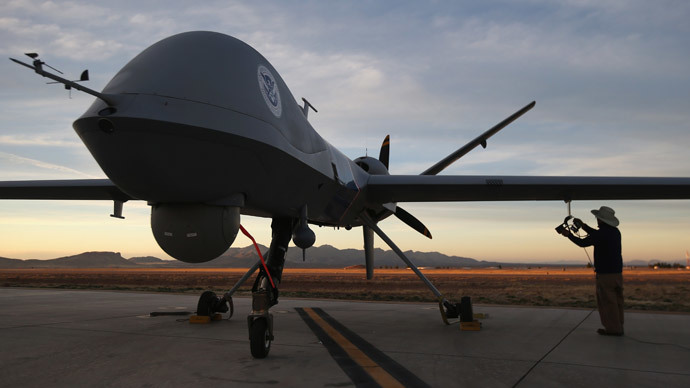
To continue counterterrorism operations abroad after the imminent exit of American troops from Afghanistan, the United States is reportedly pursuing plans to put US drones inside air bases in Central Asia.
The Department of Defense is expected to withdraw all or most of the US soldiers currently stationed in Afghanistan by the end of 2014, significantly shrinking the size of the Pentagon’s physical footprint there for the first time in over 12 years. Along with eliminating boots on the ground, though, the US will also be walking away from the bases that for years have housed the unmanned aerial vehicles, or drones, that are responsible for administering lethal missile strikes against suspected insurgents in neighboring Pakistan.
On Monday, the Los Angeles Times reported that the US is considering moving their drones to air bases elsewhere in Central Asia. Amidst international condemnation, however, relocating the controversial program is likely to come not without opposition.
Citing unnamed US officials, Ken Dilanian and David S. Cloud reported for the Times that the covert American drone strikes carried out by the Central Intelligence Agency could cease as a result of relinquishing bases in Afghanistan near its demarcation line with Pakistan.
Currently, the Times reporters wrote, CIA analysts rely substantially on human intelligence collected by those in the region willing to provide American authorities with information on suspected extremists. Collaborated with other data, that intelligence is used by the CIA to carry out lethal drone strikes against alleged Al-Qaeda members and other targets in the volatile parts of neighboring Pakistan.
“They pay people to place GPS trackers on cars or buildings to help guide the drone-launched missiles,” the journalists wrote.
At the same time, though, the spy agency also needs the Pentagon to stay close to Pakistan because, according to the Times’ sources, “The CIA cannot fly drones from its Afghan drone bases without US military protection.” Once that protection is impossible, the Times reported, “[t]he CIA's targeted killing program thus may prove a casualty of the bitter standoff with Afghan President Hamid Karzai over whether any US troops can remain in Afghanistan after 2014.”
With the future of the CIA’s abilities in Pakistan now up in the air, the US is reportedly pursuing bases elsewhere in the region that would allow covert drone strikes to still be carried out against area insurgents.
“If the bases are evacuated, the CIA fleet of armed Predator and Reaper drones could be moved to airfields north of Afghanistan,” the Times reported, citing unnamed US officials who did not identify possible locations.
Afghanistan is immediately surrounded on the north by Turkmenistan, Uzbekistan and Tajikistan, but the US is likely still unwelcomed in at least one of those locales — in 2005, author Brian Glyn Williams told the Times, Uzbekistan evicted the CIA’s drones from a base there.
Joshua Kucera, an Istanbul-based writer for The Bug Pit website, wrote on Monday that choosing any of those three nations, in his opinion, “would have serious downsides from the US's perspective.”
“Tajikistan is highly susceptible to Russian pressure, and the Kremlin is surely not inclined to let the US reestablish its military presence in Central Asia,” he wrote. “Uzbekistan might be willing to host a base and is relatively immune to Russian pressure, but is a bit of a bete noire in Washington and setting up a drone base there would surely face resistance from human rights-inclined members of Congress. And Turkmenistan would have some of the same problems as Uzbekistan, but also has a proudly held neutrality that would seem to preclude hosting US drones.”
Despite Kucera’s claims about Tajikistan, though, the LA Times’ reporting suggests there is a very real possibility that the CIA may soon ship its drones there. Just last month, the paper reported, the commander of the US special operations in the Middle East and Central Asia visited Tajikistan for talks on "issues of bilateral security cooperation" and "continued military cooperation," according to a US Embassy statement from that country’s capital city, Dushanbe.
Coincidentally, Kucera added, the US Defense Intelligence Agency just advertised for a job for an intelligence officer to be posted in Dushanbe to work on "short and long term analysis of military capabilities, infrastructure or political-military issues."
Regardless of what happens in Afghanistan, however, the CIA’s secret drone program has a chance of coming across another roadblock: President Barack Obama has repeatedly touted a plan that would transfer UAVs away from the spy agency and fully into the hands of the Pentagon, but those efforts have been halted by members of Congress who oppose losing the covert program.


